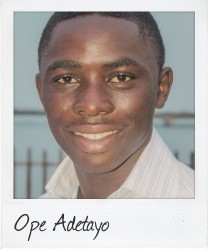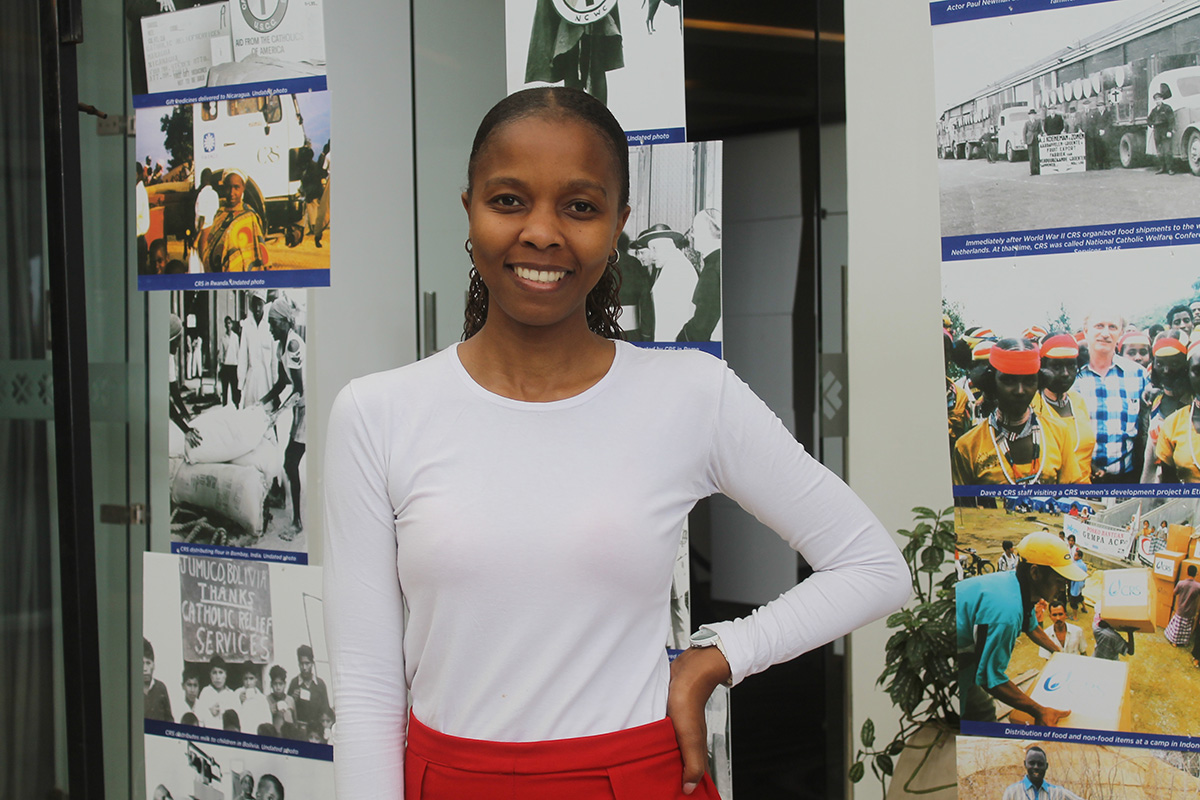“Relics from a dark era can be resolved”
October 5 Regional tension is a concern, writes Ope Adetayo, 19, a Commonwealth Correspondent from Lagos, Nigeria, but is not a new issue or restricted to any one country. He looks at history and suggests that answers are available.
Regional tension is a concern, writes Ope Adetayo, 19, a Commonwealth Correspondent from Lagos, Nigeria, but is not a new issue or restricted to any one country. He looks at history and suggests that answers are available.
Each day passes and the news trickles out. The situation portends grave consequences. People watch on, arms akimbo and anticipate the future like the coming of a new moon. Millennials hide behind the anonymity provided by internet to forment a grave ambience of horrible spectacles. Armies are confronting one another. What does that mean? Tribes are turning against each other, some are killing unjustly and everything all seems like an interesting cinematic experience.
This moment is a facsimile of the advent of the 1967-1970 Civil War that annihilated a substantial fraction of the Nigerian humanity. That was the darkest moment in the history of a country that was carved for continental domination and important global political presence. Unfortunately, she prosecuted a war that invented an everlasting antipathy.
The relics of the moment of complete darkness and bloodshed have come back to haunt the country again. The reveberations resonate daily on the front-page of every newspaper like a “Merry Christmas” on a festive balloon.
The country is on a precipice because there are elements agitating for a replica of the darkest moment that has historical scars which are yet to heal completely. A very measured approach is logically required to tame this situation so as to avoid snowballing to a catastrophic level. And in that regard, the federal government has been found wanting.
It is not a nascent development or a twenty-first century concept for a people to demand self-actualisation. In fact, it has been a punctuating line in many pages of history. But one thing I believe is that self-actualisation has to be motivated by an impetus that drives the most fundamental parts of a people’s needs. It is not a mere banal slogan which is being parroted to incentivise a needless fury, or agitation that will be prologue to a tragic national play.
Just as Catalonia demands separation From Spain, just as the Kurds want secession from Iraq, Southern Cameroon from Cameroon or any other part of any country currently demanding a separate sovereignty, ‘Biafra’ has a voice to demand what she feels best in the interest of her people. But no country in history has ever willingly ceded herself without an obstruction. That is the point where conflict arises.
Nigeria has mounted obstruction, just as Madrid has clamped down on efforts by Catalonia to take the bold step toward secession. But the real question is, how long can obstruction work? How long will it be efficient in containing the crisis? I think the answer is not oblique. Governmental obstruction to the will of a people has its expiry date. One day, it won’t be enough and the government will be left stranded.
Having realised this, should we not seek solutions rather than create more questions about the future? What this country needs as regards the threat to its national existence are political evolution and psychological – rather than electoral – referendum. Political evolution is the abandonment of the current polity and psychological referendum is simply a radical psychological departure from the wreck we have all succeeded in creating in the name of steering a nation.
Against the backdrop of Nigeria’s fifty-seventh independence celebration, it could be inferred that the grievance of the people is not emanating from territorial issues but from the lack of existential wellness. Therefore, what the people, whether a Southerner or a Northerner, a Christian or a Muslim, a graduate or a trader or whatever category they belong, covet is a working nation and a better, meaningful living condition.
Therefore, rather than managing the situation in the name of a sacrosanct territoriality, a shrewd and realistic approach should be adopted. It is wiser that the government realises that agitations are borne of inner feelings of an individual, especially as they relate to an individual’s life, rather than the political overtone which is always adduced to provide political solutions.
Food on the table, a befitting available job, a viable public transport system, a life-ensuring health care system, a fair judicial system, a well-policed state, a standard education system, an unbiased political system, are the answers to these several agitations.
In short, a progressive system is the answer.
An uncertian future looms for Nigeria. The government has the complete knowledge of what should be done. Then, let it be done!
Reach me on Twitter @Opeadetayo1
Photo credit: feck_aRt_post biafra via photopin (license)
…………………………………………………………………………………………………………………
About me: I am Ope Adetayo, an undergraduate of Performing Arts at the University of Ilorin. I enjoy indelible interest in literary and critical writing, theatre works and journalism among others, which I use as my platform to propagate my ideas, to project a better future for African youths, and to improve its political and humanitarian systems. I am the author of Age and Blood and I hope to write more books in the future.
…………………………………………………………………………………………………………………
Opinions expressed in this article are those of the author and do not necessarily represent the views of the Commonwealth Youth Programme. Articles are published in a spirit of dialogue, respect and understanding. If you disagree, why not submit a response?
To learn more about becoming a Commonwealth Correspondent please visit: http://www.yourcommonwealth.org/submit-articles/
…………………………………………………………………………………………………………………




